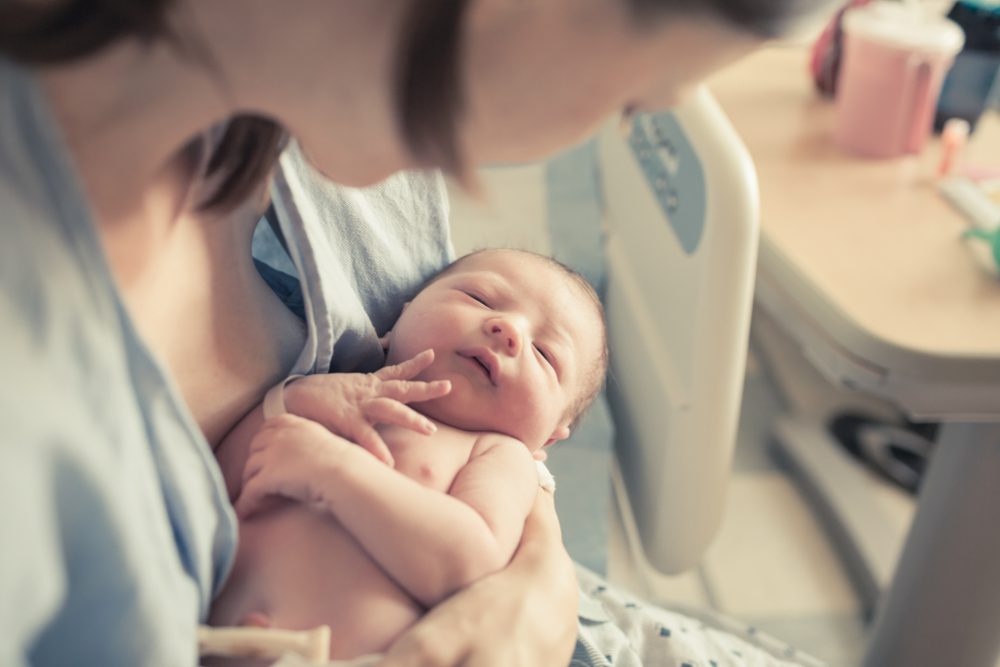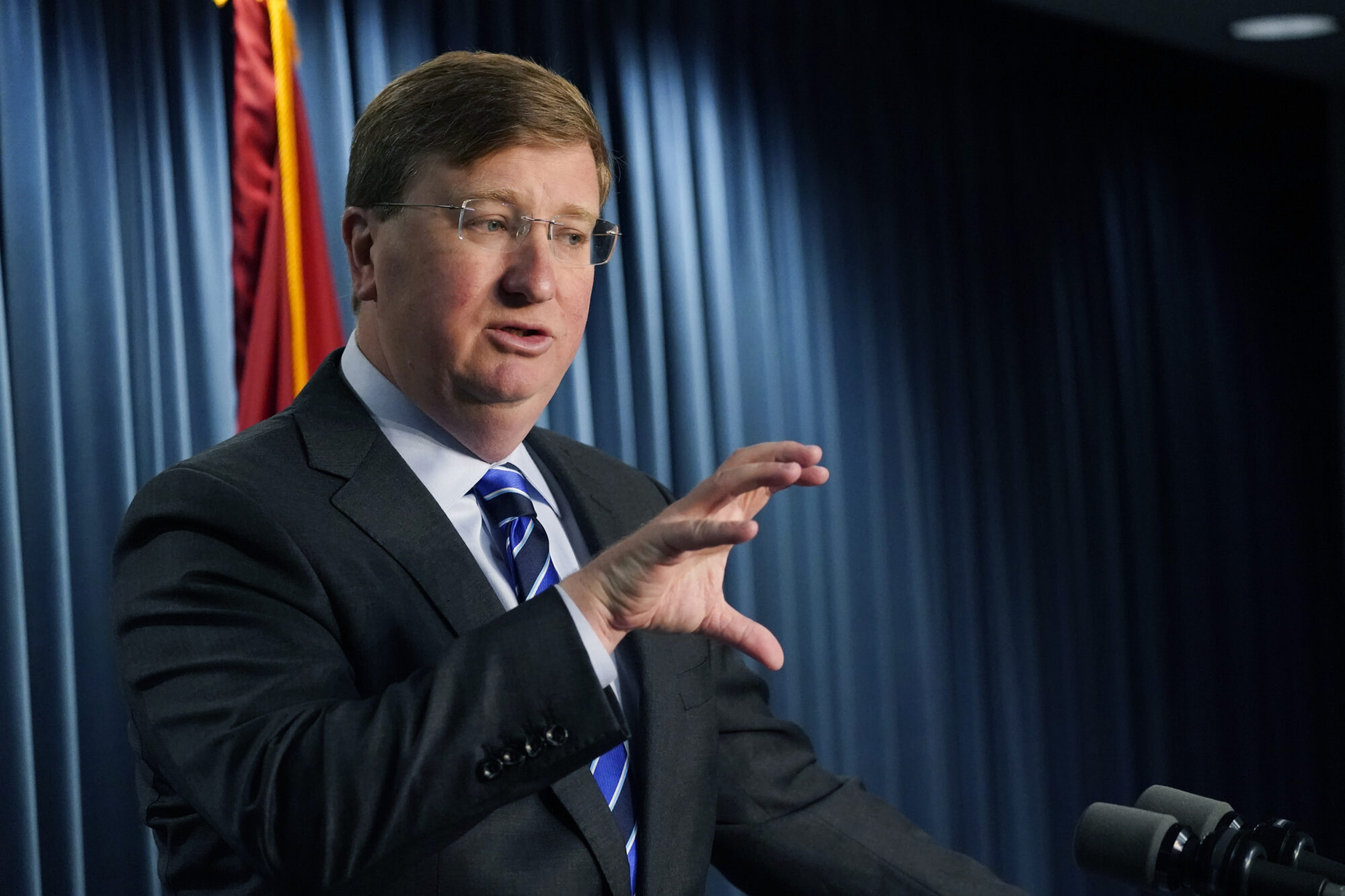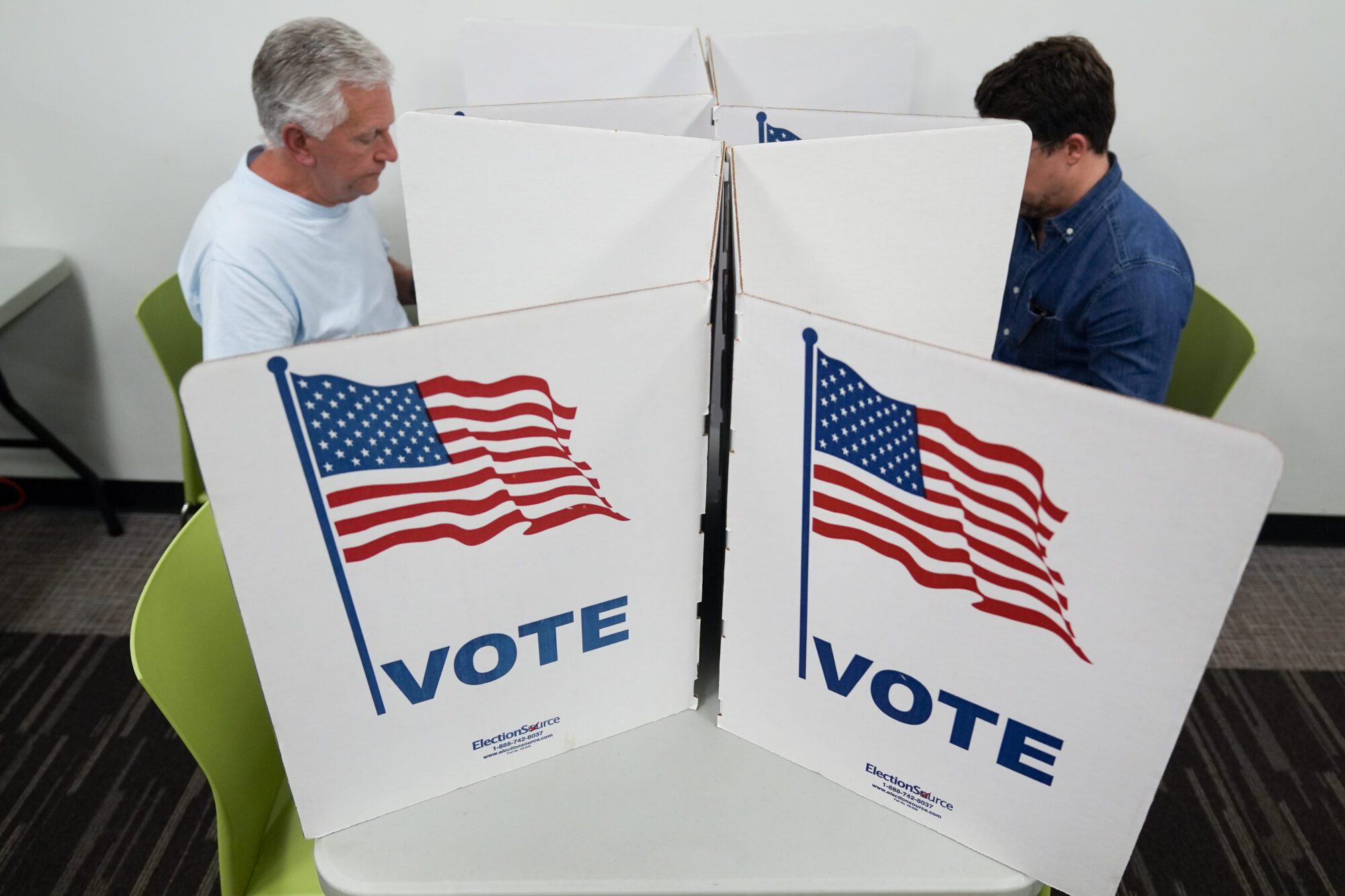
Mississippi Republican Gov. Tate Reeves answers a reporter's question on his announcement of a tech company expected to invest $10 billion to build two data processing centers that will create 1,000 jobs in central Mississippi, during a Wednesday, Jan. 24, 2024, news conference in Jackson, Miss. (AP Photo/Rogelio V. Solis)
- The legislation aimed to align the state’s Medicaid program with federal regulations.
Legislation meant to conform Mississippi’s Medicaid provisions regarding presumptive eligibility for pregnant women to federal regulations has gone into law without the signature of Governor Tate Reeves (R).
As previously reported, presumptive eligibility refers to the process of granting Medicaid services to those who may qualify before their eligibility is verified by the program.
A similar bill – HB 539 – passed the Legislature in the 2024 session and was signed into law by the Governor.
State Rep. Missy McGee (R), Chair of the House Medicaid Committee, said that when last year’s bill was sent up to the Centers for Medicare and Medicaid, a few issues were found that conflicted with federal law, such as a timeframe conflict concerning how long presumptive eligibility lasts and whether the mother-to-be has to show proof of income.
Thus, this year’s measure – HB 662 – removed language that requires women to show proof of income to align with federal guidelines, a discrepancy lawmakers said they learned about over the summer.
McGee added that the new legislation only requires the patient to attest to their income because Medicaid will be the agency to determine proof of income.
Discussion this session centered on whether proof of pregnancy would be included in the bill, but McGee said the doctor already performs that test.
“So, we want to be able to provide that for our pregnant women so they can get into a doctor early in their pregnancy and make sure they go on to have a healthy pregnancy and a healthy baby,” McGee told Magnolia Tribune Wednesday. “Obviously that’s the number one objective.”
The new law also revises the 60-day presumptive eligibility for pregnant women to however long it takes for her Medicaid application to be approved. However, that application must be made by the end of the second month of presumptive eligibility coverage.
As of press time, the Governor’s office had not released a statement as to why Reeves chose not to sign the bill.
HB 662 passed the House by a vote for 115 to 3 and the Senate by a vote of 49 to 2, meaning the measure had a veto-proof majority in both chambers.










